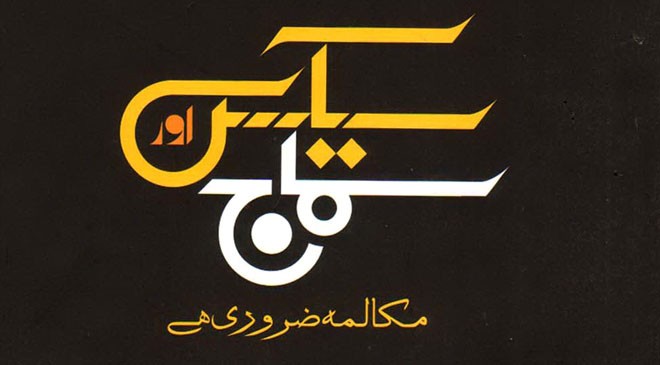
Exploring the taboos surrounding sex and sexuality in patriarchal societies

The author Saeed Ibrahim received a degree in Graphic Designing from National College of Arts (NCA), Lahore. After working with different advertising agencies, training teachers, and teaching workers’ children, he then devoted himself to writing. He began with writing columns in magazines. On the side he also designed a number of book covers.
Ibrahim, the author of Sex Aur Samaj, says that the basic reason for writing this book was that he was perturbed and disturbed by the taboos that surround sex and sexuality in our society. He was inspired by Saadat Hasan Manto, Amrita Pritum and Ahmad Bashir to write this book. He writes: "If ethics and values stop the forward march of life then one should realise their time is over and no more productive. They should be thrown in the dustbin of history".
Humour and jokes have played a very important role in human history, particularly in oppressed and closed societies where people cannot openly express themselves though the written word. I remember when Pakistani students, studying in USSR, used to visit Pakistan for holidays they would always be replete with fresh jokes about USSR and its rulers.
People employ these roundabout ways to talk about childbirth because in our conservative, patriarchal society it is a taboo to talk about sex and sexuality. An intelligent boy asked his parents how he was born. They told him that an angel came and left him in the roshandan (ventilator). He asked where his siblings came from and he was given the same response. Perplexed by this clichéd response he deduced that this meant that no one in his family was born naturally.
One needs courage to even discuss sex and sexuality in Pakistani society - far more courage is required to write a book highlighting this delicate but real issue. The self-evasive and shy Ibrahim has displayed much conviction and boldness by writing this book. He thinks that one should not adopt an ostrich-like approach towards sex and sexuality. The fact that we have done so for many years has caused many ills in our society.
Ibrahim may be the first Pakistani writer who has pleaded the causes of lesbians, gays, bisexuals, and transgenders (LGBT) openly in his book. Although these concepts have existed since the beginning of time, various societies, including ours, have declared these sexualities as sins and crimes, without delving into the whys and hows behind these taboos.
The book traces the history of the evolution of human society, its different phases and with it society’s changing values. It also highlights that feudal values are prevalent and persist in various forms in Pakistan.
Some of the other themes he explores include: what is obscenity and vulgarity; moving from freedom to slavery, and an interesting study of transformation from matriarchal to patriarchal society; the concept of nature and the shyness, hypocrisy and inquisitiveness related to it, LGBT; whether love is a reality or mirage, dowry, the concept of marriage in the light of history, joint family system and various social ills. He has also discussed the views of religious Muslim scholars like Moulana Ashraf Ali Thanvi and Maulana Moududi
It would be not wrong to say that Ibrahim is a male ally to the feminist struggle. In my opinion, during the last few decades this is one of the revolutions to have occurred because of which women have entered into various walks of life, but they have still not been able to shun old feudal prejudices. Instead, there has been an increase in violence against women; one illustration of this is that now honour killings are taking place even in urban centres such as Lahore.
This is probably the first book on this subject in Urdu in which the author has discussed the evolution and different phases of society, and how the values changed with the change of economic system. But a schism of ideas and practice has been created.
It is book of sociology, anthropology, psychology, history and politics. Since each of these topics demand separate books, his becomes a great point of reference. Having said that, it is also important to say that he has dealt with many delicate, complex topics very intelligently, and has illustrated many of his points with the help of Urdu fiction.
Three important points that Ibrahim makes are that, firstly, pre-Islam and post-Islam Arab tribal culture was much more liberal regarding the remarriage of a divorced women. Secondly, how modern gadgetry like internet and cell phone will bring opportunities for boys and girls to understand each other better. And thirdly, the issue of sex and sexuality should be made part of our educational curriculum to create a healthier society.
Sex Aur Samaj is a thought-provoking book and it has belied the claim of those who think that serious topics cannot be discussed in Urdu. This book will generate much debate in Pakistan, which is the purpose of the author. While reading on the various provocative topics in the book, there was never a dull moment. Ibrahim makes all the topics so interesting that readers would like to finish it in one sitting.
This book is a must read for all those who wants to see a healthy Pakistani society that respects the rights of the marginalised and oppressed sections of society.